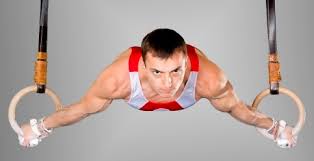Leadership
These articles focus on how to make your teammates better. I encourage coaches to think of their players as teammates. After all, if you aren't all working together towards common goals, something is wrong.
Teamwork Requirement: RESPECT
R-E-S-P-E-C-T
Find out what it means to me? It means everything!
Every coach wants a team that plays well together. With chemistry, everyone has more fun, performs better, and handles adversity better. Any team with double digit members will have individuals who are not best friends, but there is that does not prevent exceptional team chemistry. What would make it impossible is a lack of respect.
Coach Boone, in Remember the Titans, nails it in this scene:
How do you get your team members to respect each other?
- Details
- Category: Leadership Leadership
- Published: 15 February 2015 15 February 2015
Read more: Teamwork Requirement: RESPECT
Write comment (3 Comments)Coach with Compassion
Coaches are busy people with many demands thrust upon them. They also have their own motivations and challenges. Sometimes, this causes them to forget the most important rule of coaching: begin with a serving heart.
Compassion is irreplaceable. A true gift might be elaborate or as simple as an unsolicited smile, thank you, or compliment. Instead of getting angry at misbehavior, get curious. At worst, dislike the behavior, not the person. Compassion, even simple examples like these, require our most valuable resources: time and effort (but not money). This is no excuse for withholding compassion. Give. Most people are nice, and the world is wonderful in part because of this, but being compassionate is a step beyond being nice.
Everyone has a story, even if they are not in a hospital:
- Details
- Category: Leadership Leadership
- Published: 20 January 2015 20 January 2015
Read more: Coach with Compassion
Write comment (0 Comments)Building Team Chemistry with Empathy
Empathy Fuels Connections
People don't want to follow someone who leads from above. Even if this person is extremely skilled and has a powerful vision, there is a void of leadership if there is no connection. Instead of, "why can't you do this like me?" the leader says, "let's do this together."
One of the most powerful phrases from the T.E.A.M. First chapter in my book, Leadership Training for Softball (or Baseball), is, "Don't get mad, get curious." I am convinced that empathy is underappreciated and that teaching it better can significantly improve team chemistry. I hope you find the three minutes to watch this video as useful as I did:
Leaders invest time into their teammates. Coaches create a team culture that generates respect and encourages connections. Here are a few strategies I've used to empower leaders and build team chemistry:
- Have players share information about themselves with the team such as three things on their bucket list, favorite sport other than this one, favorite quote, or one thing about themselves that nobody on the team knows.
- Make a team rule that says player to player communications on the field or court are not allowed to be critical, but they are allowed to be curious.
Can you add a strategy to this list?
- Details
- Category: Leadership Leadership
- Published: 02 January 2015 02 January 2015
Great Expectations are Super…to Avoid
In sports, as in life, happiness is a goal. In addition to being nice by itself, being happy (or having fun) allows athletes to help both themselves and others. Gratitude is a key ingredient for happiness. Nothing undermines gratitude more than expectations. If a person expects something of himself or someone else and the expectation is not met, he will obviously not be grateful. Instead, he will feel frustration or disappointment, and quite possibly anger. These are not useful emotions for getting better faster, making teammates better, or performing with grace under pressure. If he expects something of himself or others and the expectation is met, he will still not feel grateful and often will not even feel happy about it. By assuming that this is what was supposed to happen or what they were supposed to get, people take their blessings for granted.
Many athletes expect to perform well because they have practiced hard and they are talented, but reality teaches us that:
Talent + Hard Work ≠ Performance
- Details
- Category: Leadership Leadership
- Published: 29 December 2014 29 December 2014
Read more: Great Expectations are Super…to Avoid
Write comment (0 Comments)SKILLS FOR LEADING BY EXAMPLE
BE TOUGH
You invest a lot into your sport. Mental toughness is the ability to execute whatever you want to get done right now. The core concepts below do not contain new information. You already have the tools and information. The descriptions of these concepts simply attempt to help you put the pieces of the puzzle together. A primary coach's goal? To maximize the return on competitors' investment of time, passion, and probably plenty of money, too.

Focus – Do you clutter your mind with too much thinking while you’re trying to perform? Focusing on the task-at-hand is a vital performance skill that can be learned with quality practice. To focus, you must block out regrets about the past and worries about the future, recognize the correct present-tense object for your focus, and find that “trust mode” that allows your potential to come out in your performance.
Positive Self-Talk – Self-Talk is not optional…you’re going to think and the quality of your thoughts is going to determine the quality of your attitudes. Are your thoughts helping you excel or holding you back?
- Details
- Category: Leadership Leadership
- Published: 16 November 2013 16 November 2013
Read more: SKILLS FOR LEADING BY EXAMPLE
Write comment (0 Comments)
